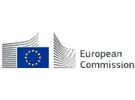Following the political agreement reached on July 13 between President Ursula von der Leyen and President Prabowo Subianto, the EU and Indonesia have concluded negotiations for a Comprehensive Economic Partnership Agreement (CEPA) and an Investment Protection Agreement (IPA). On the EU side, negotiations were led by Commissioner for Trade and Economic Security Maroš Šefčovič, who is in Indonesia to mark the milestone and meet with European and Indonesian businesses.
The agreements are designed to strengthen trade and investment ties, diversify supply chains, and create new export opportunities.
President Ursula von der Leyen said: "We have committed to double down on diversification and partnerships, to further support EU jobs and boost growth. Our deal with Indonesia creates new opportunities for businesses and farmers in a major and growing economy. This also provides us with a stable and predictable supply of critical raw materials, essential for Europe's clean tech and steel industry."
Market access and tariff reductions
The CEPA will lower tariffs on agri-food products, protect traditional EU products, and support key industrial sectors. EU exporters are expected to save about €600 million (US$647 million) annually in duties. European goods will also become more competitive in the Indonesian market.
The agreement will remove import duties on 98.5 per cent of tariff lines and simplify procedures on EU exports, including cars and agri-food. It will also allow EU companies to provide services with full ownership in sectors such as computers and telecommunications.
Impact on agriculture and farmers
EU farmers will benefit from the elimination of tariffs on exports such as dairy products, meats, fruit and vegetables, and processed foods. The agreement also protects 221 EU and 72 Indonesian geographical indications. Sensitive products such as rice, sugar, and fresh bananas remain subject to tariffs, while quotas will regulate access to the EU market for other sensitive items.
Currently, EU agri-food exports to Indonesia total €1 billion (US$1.08 billion) annually, exceeding imports except for crops not grown in the EU.
Sustainability and raw materials
The CEPA incorporates commitments on climate, environment, and workers' rights, setting the Paris Agreement as an essential element. It promotes trade in renewable energy and low-carbon technologies and establishes cooperation on environmental and climate issues, including in the palm oil sector.
Indonesia, a leading producer of raw materials, will provide more secure and predictable supply chains under the agreement through tariff reductions, export facilitation, and sustainability measures.
Next steps
The draft texts will undergo legal revision and translation. The European Commission will then submit them to the Council for signature and conclusion. After adoption by the Council, the agreements will be signed and forwarded to the European Parliament for consent. Once both sides ratify, the CEPA and IPA will enter into force.
To view the full report, click here.
 © European CommissionFor more information:
© European CommissionFor more information:
European Commission
Tel: +32 2 299 96 96
www.ec.europa.eu
